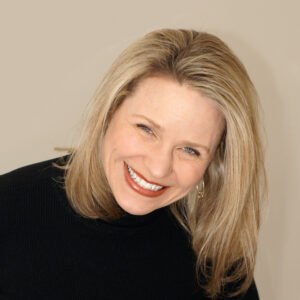Get the Results You Need
The most amazing leaders are those who dare to be their true selves. That’s the philosophy behind the new book Brave Leadership: Unleash Your Most Confident, Powerful, and Authentic Self to Get the Results You Need.
Author Kimberly Davis is an actress turned leadership expert turned author. Her message of personal accountability immediately drew my interest.
I spoke with her about how to become the brave leader you were born to be.
Unleash Your Most Confident Self
What type of leadership worked in the past but doesn’t work anymore?
While command and control worked well during the Industrial Age, today it can destroy a culture and suffocate your results.
What leadership qualities are important to today’s workforce?
The best leaders—the men and women people want to follow, not have to follow—are confident, authentic (genuine, worthy of trust, reliance and belief), and intrinsically powerful, which means they’re connected to a purpose greater than themselves.
What stops most leaders from being that brave leader that they want to be?
There are a number of things that stop leaders from being the brave leader they want to be. Firstly, most senior leaders in today’s workforce developed their leadership style during the command and control era, which makes it difficult for them to model the kind of leadership emerging leaders need to cultivate today and often unwittingly discourages a more human-focused approach. This creates a tension as emerging leaders often recognize that a new way of doing things is needed, but they’re getting pressured to follow in the footsteps of their boss and don’t know what else to do.
The other reason is, few of us give ourselves permission to stop and ask ourselves why do we what we do—beyond a paycheck exchange—to truly get to the heart of what drives us internally and the impact that we want to have in the world. We get very focused on hitting goals and milestones without ensuring that they’re anchored in a purpose.
And, of course, in a world moving at the speed of light, most of us are just trying to keep up. We’re reacting to the multiplying needs and demands of our jobs and our families, and simply trying to survive the day. It’s hard to be a brave leader if you haven’t taken the time to know yourself, reflect on how you’re showing up in the world, get clear about the impact you want to have, and ensure that your actions and choices are in alignment with your best self.
Use a Super Objective
What’s a Super Objective and how is it used?
A Super Objective is essentially your purpose in action. It is the impact you want to have outside yourself (on the individuals you lead, on your team, on your culture, on your organization, community, industry, etc.—whatever it is for you personally). A Super Objective is framed in active language to set you on an active path. It is your filter for action. Some examples of a Super Objective might be:
I want to build a culture of commitment.
I want to create customer evangelists.
I want to sow the seeds of self-confidence.
I want to ignite ah ha moments.
I want to shine the light on all that’s good.
Once you have named your Super Objective, you can then use it to focus your attention. So, for example, if your Super Objective is to “sow the seeds of self-confidence,” in every situation you face you would work to focus on taking action to achieve that objective, and you use that to hold yourself accountable. Did you sow the seeds for self-confidence in this conversation? Yes or no? In this meeting? In your presentation? On your call? Yes or no? It forces your feet to the fire. It’s easy to sow the seeds of self-confidence in a meeting with a high-achiever or a beloved client, but not so much with someone who’s not hitting their numbers or you have to lay off. Brave leaders don’t just work to achieve their Super Objective when it’s easy, brave leaders work to achieve their Super Objective in every situation they face. The byproduct is that their words and actions are congruent with who they truly are, that people experience them as authentic and want to give them their best. They want to follow. Brave leaders’ results are a byproduct of them showing up as authentically and powerfully as they can. The Super Objective is their vehicle for doing that. It keeps them integrated with themselves.
Leadership & Vulnerability
Talk about vulnerability and how it relates to leadership.
 I think of vulnerability as both our biggest obstacle and our greatest source of power. One of the most important things a leader can do is to identify, specifically, what happens to them physically, emotionally, and mentally in the face of vulnerability—for once you name it, you can do something about it. Do you evade eye contact? Do you overcompensate by bragging? Do you numb yourself with work, or food, or exercise, or alcohol? Where does tension show up in your body—specifically? How does it affect the way you show up in the world? What happens to your breathing? What messages are you telling yourself? The list goes on! Most of our ineffective behaviors can be traced to an inability to deal with vulnerability. Someone who doesn’t make eye contact when they speak and paces the floor and speaks robotically has got a vulnerability issue, not a technical issue. You could give that person all the technique in the world, but that won’t make them a better speaker. Help them understand how to navigate their vulnerability, and that will change their game.
I think of vulnerability as both our biggest obstacle and our greatest source of power. One of the most important things a leader can do is to identify, specifically, what happens to them physically, emotionally, and mentally in the face of vulnerability—for once you name it, you can do something about it. Do you evade eye contact? Do you overcompensate by bragging? Do you numb yourself with work, or food, or exercise, or alcohol? Where does tension show up in your body—specifically? How does it affect the way you show up in the world? What happens to your breathing? What messages are you telling yourself? The list goes on! Most of our ineffective behaviors can be traced to an inability to deal with vulnerability. Someone who doesn’t make eye contact when they speak and paces the floor and speaks robotically has got a vulnerability issue, not a technical issue. You could give that person all the technique in the world, but that won’t make them a better speaker. Help them understand how to navigate their vulnerability, and that will change their game.
On the flip side, if brave leaders are people who others want to follow, not have to follow, then they must be able to connect to the hearts and minds of those they need to lead and influence. One cannot connect with the hearts of others from behind a mask. Leaders have to be willing to put themselves on the line and show their humanity. A brave leader is someone who understands and leverages the power of vulnerability.
The Magic If
How about “The Magic If” – tell us more about that.
The Magic If is an extraordinarily powerful, yet simple, tool. It asks this one basic question: If I were in this situation, what would I do? How would I feel? It is empathy in action. It forces you to step into someone else’s shoes and view the world through their lens, without judgement. To achieve your Super Objective, you have to pay attention to the impact you’re having. You have to be able to adjust your actions quickly. Whether or not you achieve your Super Objective is on you. If what you’re doing isn’t working, it’s on you to adjust. To understand what others need from us so we can take the best action, we must be able to see through their eyes. The Magic If is the key.

